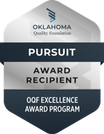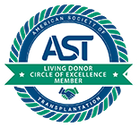Shape Divider - Style triangle_asymmetrical
Lesson Plan #1What do you know about organ, eye and tissue donation?This assignment is most effective as the first lesson about organ, eye, and tissue donation.
Objective: Following this lesson, students will have a general understanding of organ, eye, and tissue donation, and knowledge about common misconceptions, a few statistics, and accurate facts. Any remaining misconceptions will be addressed in the online video, by the classroom speaker, and/or through the following lessons. Time: 15 minutes |









